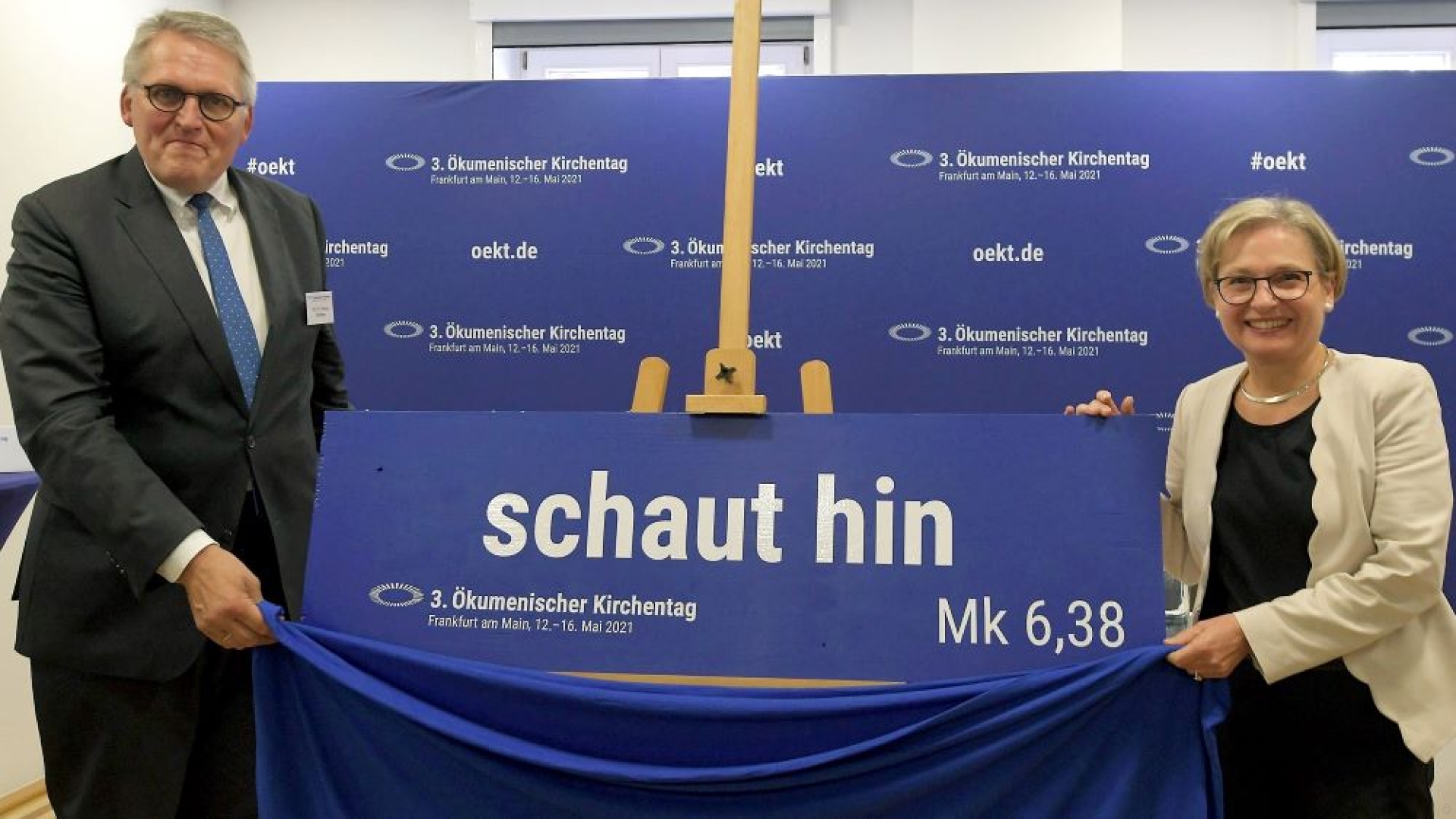Frankfurt “Ecumenical Days” Have Kept All Their Promises

Thomas Sternberg and Bettina Limperg
With the Synodal Path in place and the challenge to Roman authority become endemic, the third “ecumenical days” organized in Frankfurt am Main from May 13 to 16 have kept their promises of planned, wanted, and assumed misconduct.
The management of the third Ökumenischer Kirchentag (ÖKT), or ecumenical days, was entrusted to two lay people: Thomas Sternberg, director of the Central Committee of German Catholics (ZdK), and Bettina Limperg, a Protestant of the age of 33, who has also been President of the Federal Supreme Court since 2014.
On Saturday May 15, four celebrations were held at the same time: a Catholic Mass, a Protestant communion service, Orthodox Vespers, and the Free Churches ceremony.
It should be noted that the term “Protestant” designates the Evangelical Church of Germany which brings together, at the federal level, the Lutheran, Reformed, and United Churches. Free Churches do not identify with the Evangelical Church.
All were invited to “discover the richness of the evangelical, free, Catholic, and Orthodox communities.” It was up to “the conscience of each visitor” to decide which celebration he wanted to participate in. The four services were also livestreamed on the internet.
The day before the opening, Mr. Sternberg told reporters that in Germany, the coexistence of faiths had become an obvious fact. He added that for many this includes attending church services together.
The President of the Protestant Church of Hesse and Nassau (EKHN), Volker Jung, welcomed as a result “that with the acceptance of mutual participation in the Protestant communion service and the Eucharist, ecumenical progress has become visible.”
In terms of progress, there was first a violation of a formal interdiction. Indeed, the Congregation for the Doctrine of the Faith has already twice rejected the participation of Catholic and Protestant Christians in the full liturgical celebration of each others worship services. As well as the possibility that the decision would be up to each person’s conscience. In other words, the refusal was total.
But that didn’t stop the city’s parish priest, Johannes zu Eltz, from giving Communion to Mrs. Limperg. She said she expected “an opening of [Eucharistic] hospitality beyond the day. Our decision of conscience on admission to the Protestant communion and the Eucharist constitutes a permanent offer.”
In addition, Mr. Sternberg attended the Protestant service, and “took communion” there, which represents a “communicatio in sacris”, that is, a participation in non-Catholic worship, in addition to a ceremony which has nothing to do with the Mass. And undoubtedly he was not the only one.
Such participation makes the guilty party suspect of heresy, as he is supposed to adhere to Protestant doctrine. Even the new code of canon law does not recognize such a possibility for a Catholic.
Thus, President Sternberg, so closely associated with the Synodal Path, is really suspected of heresy. But who will this surprise? Moreover, his example was a sin of scandal in the strongest sense of the word. Scandal that will continue until he makes a retraction.
The drunken boat of the Synodal Path wanders on the sea of syncretism, free from all constraint.
Related links
(Sources : InfoCatolica/katolisch.de/Wikipedia – FSSPX.Actualités)
Illustration : © ÖKT





